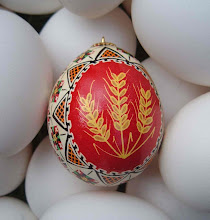Thursday, May 20, 2010
Saving Milkweed
Milkweed is one of the most beautiful flowers we can grow in the garden, and the fragrance is intoxicating. It's also food for monarch butterfly larvae (it's the only food the caterpillars eat). This site even suggests planting it for that purpose. Lots of other insects and bees love the nectar too (see the small bees at the upper left of the blossom in the picture). Monarchs are so challenged with loss of habitat in their winter grounds in Mexico that it's a privilege to do everything we can to help their numbers remain high.
In the garden it seems to be a weed, but in fact except for its inconvenient size and shade (which in our hot garden can be an advantage) it really doesn't behave like a weed. The root is one substantial tap root, which reaches down a considerable distance, and therefore brings up minerals from below the level that other roots typically reach. Because it doesn't have much in the way of lateral roots it doesn't interfere with the growth of nearby plants. So it's a great way to grow organic matter for next year's garden.
So I leave as many milkweed as I possibly can. This year I designated a spot for them, approximately where they were last year - but instead they have moved (or been dragged by the tiller?) elsewhere. Once the plant matures the long roots stay in the garden and send out runners from which new plants will emerge.
Here are a couple of pictures of the plants just emerging- the shoot can also have a reddish cast:
Subscribe to:
Post Comments (Atom)







I am in total shade now, but used to plant milk weed at my last place. You are right- the scent is spicy and intoxicating. I had originally intended to plant it just for the Monarchs but after the first year, I knew I was growing it for both of us. Love the glossy green leaves and the height of the plants too. A perfect back drop for the rest of the flower bed.
ReplyDeleteThey were intoxicating this year. I discovered I had two different varieties in the garden - this lovely, full, deep pink, and another less full, paler, variety. I suppose I'll keep both. Who knows which the insects prefer. But I'm planning on transplanting some roots of the deep pink to my front yard.
ReplyDelete